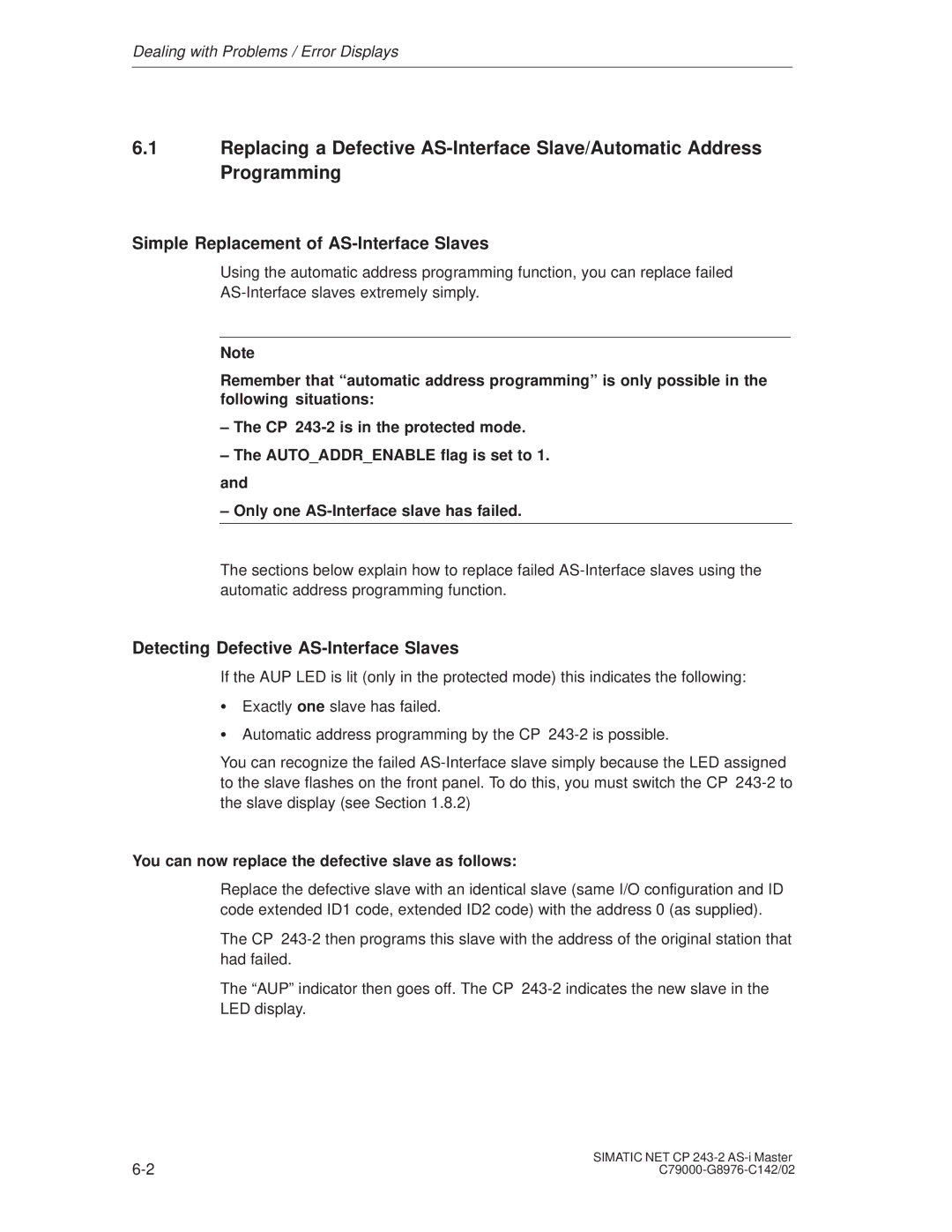
Dealing with Problems / Error Displays
6.1Replacing a Defective
Simple Replacement of AS-Interface Slaves
Using the automatic address programming function, you can replace failed
Note
Remember that ªautomatic address programmingº is only possible in the following situations:
±The CP
±The AUTO_ADDR_ENABLE flag is set to 1. and
±Only one
The sections below explain how to replace failed
Detecting Defective AS-Interface Slaves
If the AUP LED is lit (only in the protected mode) this indicates the following:
SExactly one slave has failed.
SAutomatic address programming by the CP
You can recognize the failed
You can now replace the defective slave as follows:
Replace the defective slave with an identical slave (same I/O configuration and ID code extended ID1 code, extended ID2 code) with the address 0 (as supplied).
The CP
The ªAUPº indicator then goes off. The CP
SIMATIC NET CP | |
